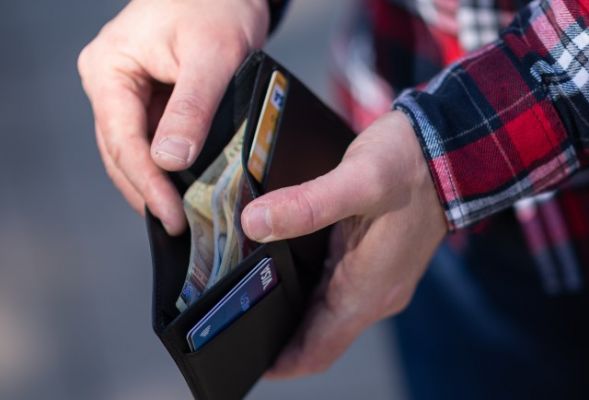 |
 |
News
Banking scams: how to keep yourself safe

Photo credit Unsplash/Emil Kalibradov.
We’ve all had those strange calls. Out of the blue, it’s a message (often an urgent one) claiming to be from your bank to warn you of suspicious activity on your account. And asking you to confirm all of your important details so they can log in and check it out.
Scammers will stop at nothing to get your money, and over half all scams start with a phone call. Often, these are very effective by luring a customer into a conversation and tricking them into giving the scammer the keys to their account. A bank scam will typically involve a fraudster, pretending to be from your bank or building society, phoning you to say you’ve been a victim of fraud.
There are many variations on this scam. They may ask you for personal and financial information to get access to your bank account or to steal your identity.
Alternatively, they may tell you there is a corrupt member of staff in your bank and they need your help to identify them. They may also ask you to transfer all your funds into a ‘safe account’ because your account has apparently been taken over. This ‘safe’ account will likely be with a different financial institution.
What should I do?
Remember to always be suspicious of cold calls and to reject them. Signing up for a call blocking service might not stop all scam calls but it will stop cold callers.
If you receive a phone call from someone you don’t know, always ask for the name of the person to whom you are speaking, and who they work for. Check this information by calling the company’s office on a different phone line in case the caller is holding the line open.
It’s best to wait for 20 minutes before you make this call to a trusted phone number to check out what is happening, as scammers are able to keep phone lines open. Whilst you may think you are making a new phone call, the line is still open to the scammer who pretends to be a different person from your bank or from the police. If possible, use a different phone or call somebody else in the meantime.
Never give out your personal, full credit card or online account details unless you made the call and the phone number came from a trusted source.
Never assume that someone is who they say they are just because the number on your caller display matches that of the organisation you know. Scammers can clone telephone numbers of organisations they want to impersonate and make the number appear on your caller ID display. The scammer may well tell you to ‘Google’ the number to confirm it is genuine. This is also true for text messages. Scammers can manipulate a text to appear as if it comes from your bank.
It’s best not to respond to text messages or missed calls that come from numbers you don’t recognise or are not expecting.
Falling for a scam can be embarrassing, and even devastating, but it’s always important to report what has happened. This will help you get the best help and support and also help in investigations which are seeking to tackle scams.
How do I report a scam and get help?
If you live in the Republic, you should report incidents of fraud to your local Garda station where officers can investigate the matter on your behalf. An Garda Síochána or your bank will never contact you to look for your banking PIN number or password or ask you to transfer money, or come to your home to collect your payment card, cheque book or cash.
If you live in Northern Ireland, you should make a report to the PSNI when any of these apply:
a fraud is being committed or recently occurred (within 24 hours);
you know the suspect and they live in Northern Ireland;
the victim is perceived to be vulnerable; or
you believe it’s important to report the incident to police so they can secure and preserve evidence or prevent loss.
You can make this report to the PSNI by phoning 101, or 999 in an emergency.
For other cases, it is recommended that you contact Action Fraud, the UK’s national fraud and internet crime reporting unit. It offers a central point of contact for information about fraud and financially motivated internet crime. Action Fraud can be contacted on 0300 123 2040 and you can also make a report online at www.actionfraud.police.uk
When you make a report to Action Fraud, you will receive a police crime reference number. If you receive a scam email message or a computer virus but you haven’t lost any money, you can also report it, for information purposes, to Action Fraud.
Remember, if you can spot a scam, you can simply put the phone down and stop it there and then. And if you have been scammed, ripped off or conned, you are not alone and there is something you can do about it.
The Church of Ireland, alongside other Churches, is supporting the Scamwise NI campaign and other initiatives to prevent and encourage the reporting of scams.
Church Leaders Group:
The Church Leaders Group comprises the Church of Ireland and Roman Catholic Primates of All Ireland, the Moderator of the General Assembly of the Presbyterian Church in Ireland, the President of the Methodist Church in Ireland, and the President of the Irish Council of Churches.